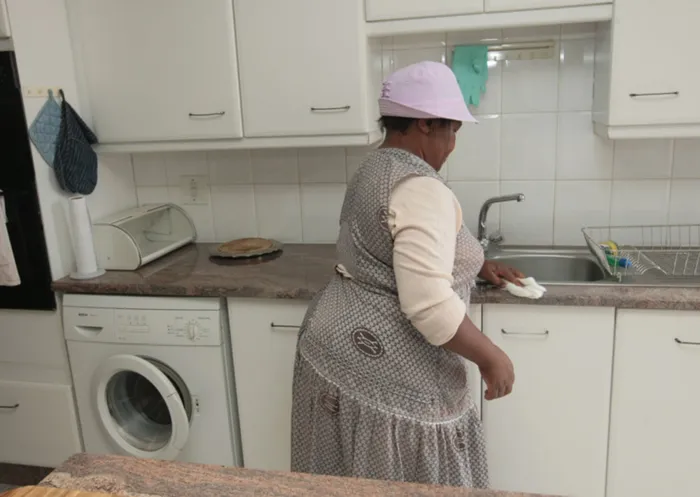Act to better protect domestic workers

270110 Risk of unemployment among domestic workers.Lesia Motha(53)busy at work.photo by Simphiwe Mbokazi 270110 Risk of unemployment among domestic workers.Lesia Motha(53)busy at work.photo by Simphiwe Mbokazi
Cape Town -
Domestic workers could soon be compensated for injuries suffered at work if Parliament passes amendments to the Compensation for Occupational Injuries and Diseases Act.
Labour Minister Mildred Oliphant told the Domestic Workers Imbizo in Soweto on Saturday that Parliament was reviewing the act as well as the Unemployment Insurance Act.
The reviews would consider extending unemployment benefits to domestic workers for maternity leave, and lengthening the claim period and the benefit’s time frame, she said.
The benefits would include foreigners working as domestic workers.
“The (amendment) act also gives pregnant domestic workers the right to take maternity leave, (and) allows for deductions from a domestic worker’s pay only under certain conditions,” Oliphant’s spokesman, Mokgadi Pela, said.
Domestic workers are not covered by the act, and the SA Domestic Service and Allied Workers Union has been campaigning for more than 10 years for them to be included.
Union president Hester Stephens welcomed the review, but said the union remained concerned about the low pay of domestic workers.
Pela said it was unclear when public hearings would be held or how long the parliamentary review would take.
He said it would be the first time domestic workers would be compensated for injuries.
After public consultation a report with recommendations would be given to Oliphant to consider before the amendment was finalised, Pela said.
“It is a very long process.”
Stephens said workers did not enjoy protection if they were injured at work, although there were exceptions. Some “compassionate” employers would help a worker with medical care, but others would replace an injured worker who was unable to continue their duties, she said.
She recalled an instance where a domestic worker was fired after she fell off a ladder and broke her arm. She had to pay her own medical bills.
“It is a major challenge that we don’t have compensation when workers get hurt at work. We have been engaging with the Department of Labour asking how the workers could be compensated if they fell and injured themselves at work,” Stephens said.
“We are hoping the department will let us know when the hearings will be so that workers could give input.”
Union members met in Salt River on Sunday to draft a memorandum addressed to Oliphant registering their unhappiness with the minimum wage for domestic workers.
Under the sectoral determination for domestic workers, the minimum monthly wage for those working for more than 45 hours a week is R1 877.70 until November.
The union wanted it raised to R2 500 a month, Stephens said.
The last increase in November had been “very little”. Many domestic workers lived below the breadline.
Cape Times